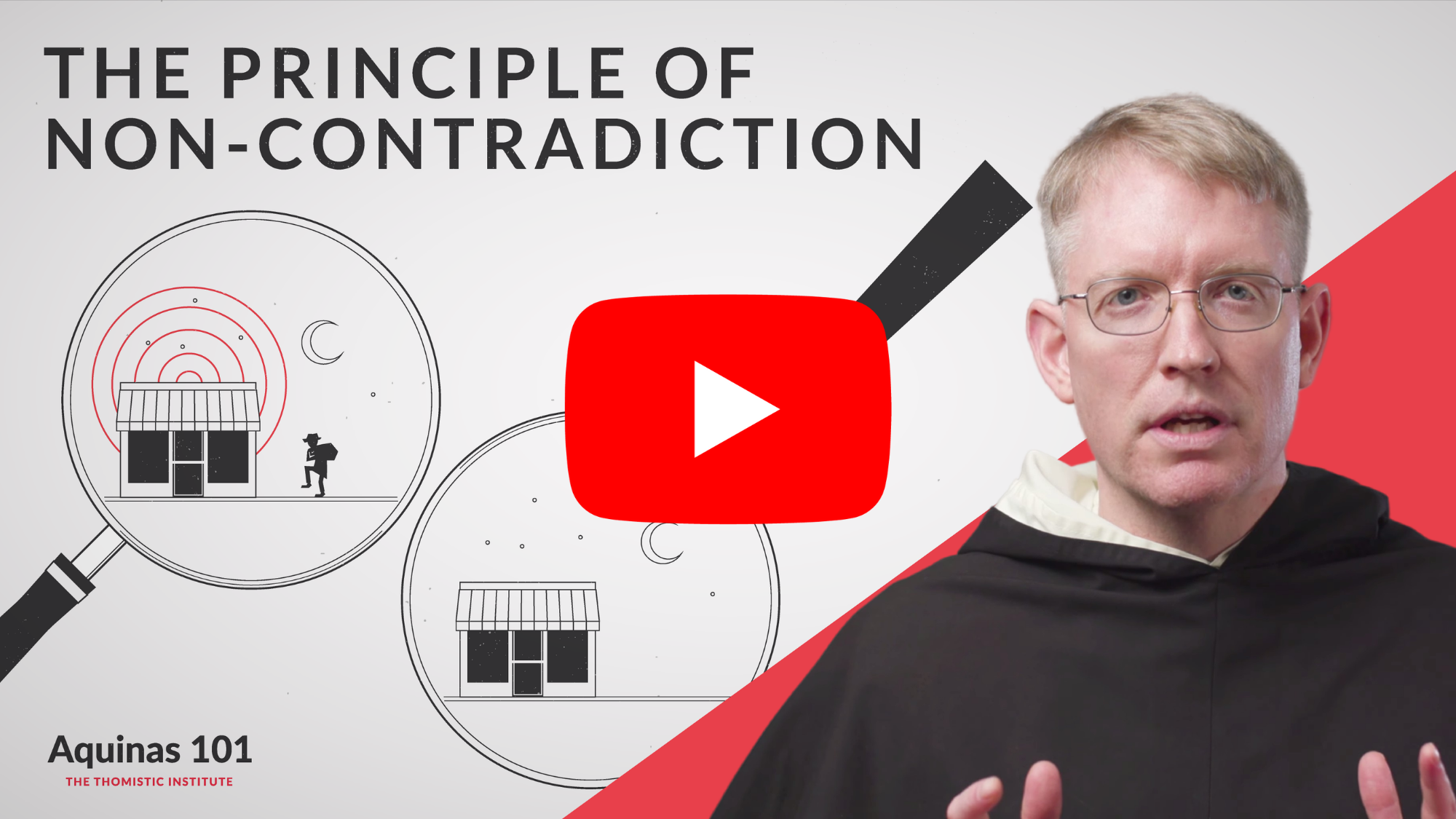Lesson 11 –
Quantum Mechanics and the Principle of Non-Contradiction
Can something be true and false at the same time? Can a cat be both alive and dead at the same time? Common sense and Thomistic philosophy would say no. Nevertheless, some people argue that science says yes because of quantum mechanics and the famous Schrödinger's Cat experiment.
Excerpt from Metaphysics by Aristotle:
[T]he most certain principle of all is that regarding which it is impossible to be mistaken; for such a principle must be both the best known (for all men may be mistaken about things which they do not know), and non-hypothetical. For a principle which every one must have who understands anything that is, is not a hypothesis; and that which every one must know who knows anything, he must already have when he comes to a special study. Evidently then such a principle is the most certain of all; which principle this is, let us proceed to say. It is, that the same attribute cannot at the same time belong and not belong to the same subject and in the same respect; we must presuppose, to guard against dialectical objections, any further qualifications which might be added.
Course Listening
More Videos
Physics and Philosophy: Does Thomas Aquinas Have Anything to Offer? | Fr. Thomas Davenport, O.P.
Related videos from earlier in the series
This episode was made possible through the support of a grant from the John Templeton Foundation. The opinions expressed in this project are those of the author(s) and do not necessarily reflect the views of the John Templeton Foundation.
Enroll now in “Aquinas 101: Science and Faith” to receive each video lesson directly in your inbox as they are released!


